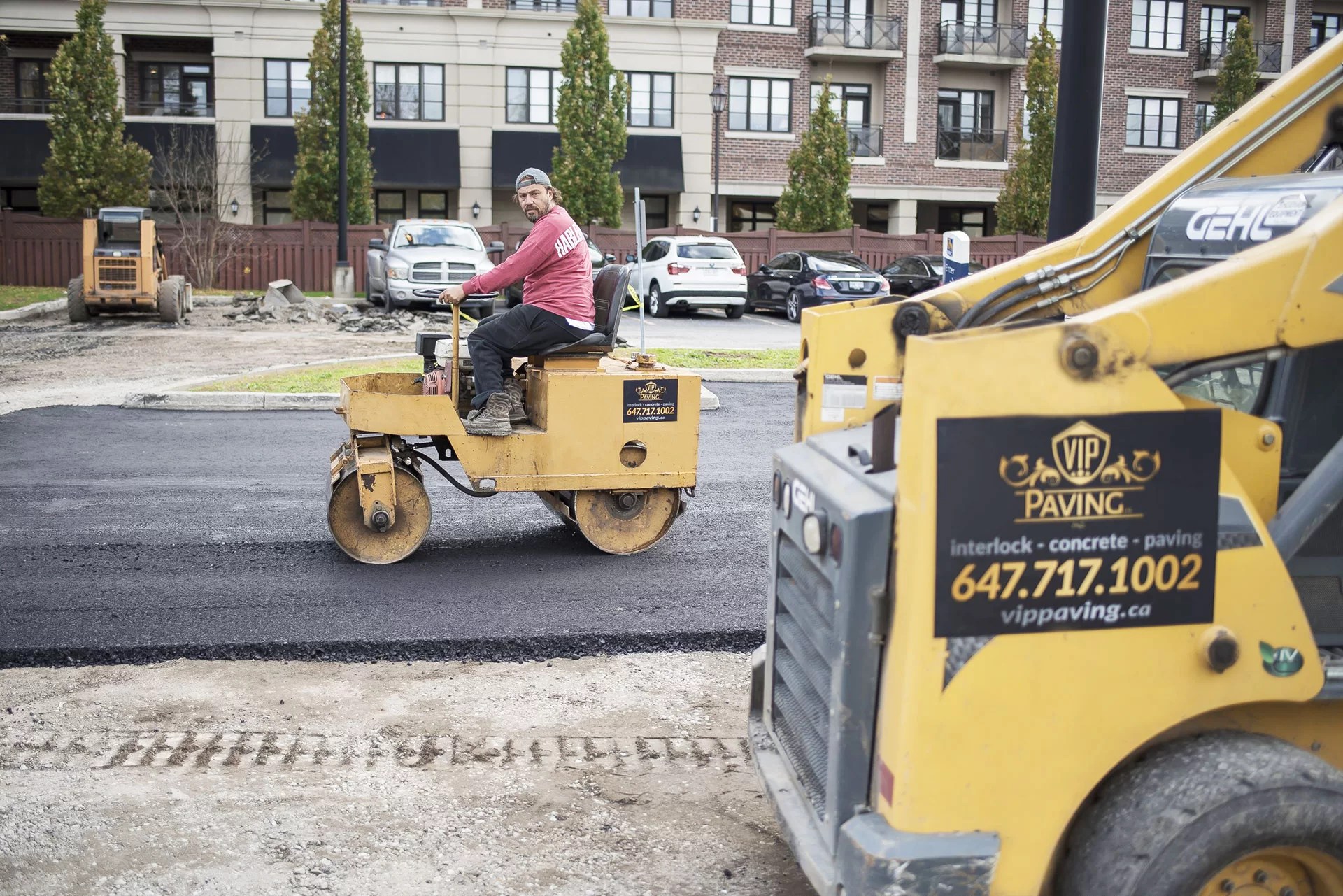Thinking about a new driveway or resurfacing your existing one? Understanding asphalt costs is key to planning your project. This comprehensive guide breaks down 2024 asphalt driveway pricing, covering everything from materials to installation. Whether you need a small driveway for one car or a larger area, this guide will help you make informed decisions and potentially save money. We’ll explore typical price ranges, uncover potential hidden costs, and offer practical tips for getting the most out of your paving project.
Decoding Asphalt Prices
Understanding the factors that influence asphalt cost per square foot is crucial for accurate budgeting. It’s not as simple as a single number; several variables contribute to the final price.
Factors Affecting Cost
Just like building a house, the foundation matters. For asphalt, that’s the thickness. A thicker layer, typically 5 inches, offers greater durability and longevity compared to a standard 3-inch layer, but it also comes at a premium. While a 3-inch layer might cost between $0.75 and $2.00 per square foot, a 5-inch layer could easily double that. Choosing the right thickness involves balancing cost with the demands of your driveway usage. Heavier vehicles, like RVs, necessitate a thicker, more robust surface.
The complexity of your project also plays a role. Basic asphalt installation generally falls between $2 and $4 per square foot. However, adding features like color, intricate patterns, or retaining walls increases the expense. Don’t overlook site preparation, which includes grading and creating a stable subgrade. This crucial step can add another $1 to $3 per square foot but is essential for preventing future cracking and settling.
Driveway dimensions are another obvious factor. A standard two-car driveway (approximately 600 square feet) typically costs between $4,200 and $7,800 ($7-$13 per square foot). A smaller single-car driveway (around 200 square feet) might cost $600-$1,000 ($3-$5 per square foot). Surprisingly, larger driveways can sometimes benefit from economies of scale, slightly reducing the per-square-foot cost.
Your location plays a significant role, too. Just like real estate, material and labor costs vary regionally. Expect higher prices in urban areas compared to rural locations due to increased transportation and labor expenses.
Finally, consider demolition and disposal. Removing an old driveway adds $1-$2 per square foot for labor. Disposing of the old asphalt can be an additional cost, although many contractors now recycle asphalt, which may offset or eliminate disposal fees. Inquire about this environmentally friendly option. Speaking of eco-friendly, using recycled asphalt can often significantly reduce material expenses without compromising quality. It’s a win for your wallet and the planet.
To illustrate, here’s a breakdown of cost factors:
| Factor | Impact on Cost |
|---|---|
| Thickness | Higher thickness = higher cost |
| Project Complexity | More features = higher cost |
| Driveway Size | Larger driveways = potential per-square-foot savings |
| Location | Varies regionally |
| Removal/Disposal | Adds to overall cost |
| Material (Recycled Asphalt) | Potential for significant savings |
Cost-Cutting Strategies
Looking to save? Obtain multiple quotes from different contractors and compare them carefully. Pay attention to what’s included (and excluded). Ask about using recycled asphalt. Even seemingly small savings can add up. Remember, long-term costs matter. Asphalt driveways typically last 15-20 years with proper maintenance, which includes periodic sealcoating and repairs. Factor these into your overall budget.
Calculating Asphalt Project Costs: 1500 Sq Ft & Beyond
Let’s tackle a specific scenario: a 1500 square foot asphalt project. A project this size typically costs between $5,880 and $13,500 for complete installation, including materials and labor. Material costs alone usually range from $5 to $7 per square foot. However, these are estimates. Several factors influence the actual cost.
Thickness and Durability
Asphalt thickness directly relates to its strength and lifespan. A standard driveway uses about 4 inches of asphalt, which is typically suitable for regular car traffic. However, anticipate heavier vehicles? A thicker layer is probably necessary. Consider “full-depth” asphalt, a super-thick slab designed for maximum durability. While the most expensive option initially, it may offer long-term savings by minimizing maintenance and repairs.
Site Preparation: The Unsung Hero
Before laying asphalt, site preparation is paramount. This involves grading the land for proper drainage and constructing a solid base, typically around 6 inches deep, using materials like gravel. This base acts as a foundation, preventing cracks and settling. Site preparation adds to the upfront cost but is a worthwhile investment, preventing costly repairs later.
Location, Location, Location
Just like housing, asphalt prices vary geographically due to differences in material availability, labor costs, and competition among contractors. Expect higher prices in major cities compared to rural areas.
Smart Spending: Getting the Most for Your Money
Don’t settle for the first quote. Obtain multiple estimates from local contractors to compare pricing and what each quote includes. Does it cover site preparation? What type of asphalt will be used? A thicker asphalt or higher-quality mix will cost more.
Protecting Your Investment: Long-Term Care
Regular maintenance is essential for preserving your asphalt driveway. Sealcoating every few years protects the surface from the elements and prevents premature wear and tear. Promptly address spills and minor repairs to extend your driveway’s life.
| Factor | Impact on Cost |
|---|---|
| Thickness | Thicker asphalt generally costs more but provides greater durability and longevity. |
| Site Preparation | Proper grading and a solid base add to upfront costs but prevent future cracking and settling, saving money in the long run. |
| Location | Prices vary by region due to differences in material availability, labor costs, and local competition. |
| Asphalt Type | Different types of asphalt mixes have varying costs. Some mixes are designed for heavier traffic or specific climate conditions. |
| Contractor | Experience, reputation, and overhead contribute to variations in contractor pricing. Getting multiple quotes is recommended. |
| Maintenance | Regular maintenance, like sealcoating, can extend the life of your driveway and prevent costly repairs. |
Ongoing research continually explores new asphalt mixes and installation techniques. Some experts suggest that incorporating recycled materials into asphalt mixes could further reduce costs and environmental impact. While current knowledge provides a strong foundation for estimating costs, recognize that these figures can fluctuate based on local conditions.
Asphalt vs. Concrete: Unpaving the True Cost of Your Driveway
Choosing between asphalt and concrete involves weighing initial costs against long-term expenses and performance. Asphalt generally offers a lower upfront cost, typically ranging from $2 to $7 per square foot installed, compared to concrete’s $4 to $18. However, consider the long-term implications.
Lifespan and Maintenance
Asphalt generally lasts 15-20 years, requiring regular maintenance like sealcoating every 3-5 years. Concrete, on the other hand, boasts a lifespan of 40+ years with minimal upkeep. While concrete’s initial cost is higher, its longevity can make it more economical over time.
Climate Considerations
Climate plays a role. Concrete handles extreme heat better than asphalt, which can soften under intense sun. In colder climates with frequent freeze-thaw cycles, asphalt’s flexibility may make it less prone to cracking compared to rigid concrete.
Installation and Repairs
Asphalt offers quicker installation, often usable within a day or two. Concrete requires a longer curing time (a week or more). Asphalt repairs are generally easier and cheaper than concrete repairs, which can sometimes necessitate replacing entire sections.
Here’s a cost comparison over 40 years:
| Material | Initial Cost (per sq ft) | Lifespan (Years) | Maintenance | Total Cost (Estimated over 40 Years) |
|---|---|---|---|---|
| Asphalt | $2-$7 | 15-20 | High (sealcoating, repairs) | Potentially higher than concrete |
| Concrete | $4-$18 | 40+ | Low (occasional cleaning, sealing) | Potentially lower than asphalt |
Ultimately, the “cheaper” option depends on your budget, climate, how long you plan to stay in your home, and your maintenance tolerance.
Calculating Asphalt Costs: A Comprehensive Guide for 2024
Calculating asphalt costs involves several key factors. Start by accurately measuring the area to be paved (length x width = square footage). The thickness of the asphalt layer also matters. Thicker asphalt (e.g., 5-6 inches) provides greater durability but increases material costs. Convert inches to feet (thickness in inches / 12) for calculations.
Asphalt can be priced by the square foot (common for residential projects) or by the ton (typical for larger commercial projects). Installed costs range from $5 to $13 per square foot, including $2 to $6 for materials and $5 to $7 for labor. A ton of asphalt typically costs $100-$200, covering roughly 30-80 square feet depending on the mix and thickness.
Use this formula to estimate total cost: Total Cost = (Surface Area × Cost per Square Foot × Thickness Factor) + Labor Cost. For example, a 1000 sq ft driveway with a 4-inch thick layer at $10/sq ft installed would be approximately $10,300 [(1000 x $10 x (4/12)) + (1000 x $7)].
Additional factors include delivery distance, site preparation (grading, excavation, removal of existing pavement), and the type of asphalt mix. Using reclaimed asphalt can lower material costs. Always obtain multiple quotes from local contractors for accurate pricing.
| Factor | Description | Impact on Cost |
|---|---|---|
| Surface Area | The total area to be paved, measured in square feet. Larger areas require more material and labor. | Increases |
| Thickness | The depth of the asphalt layer, usually measured in inches. Thicker layers provide more durability but also increase material costs. | Increases |
| Asphalt Mix | Different mixes have different properties and costs. Some mixes are designed for heavier traffic and may cost more. | Varies |
| Labor Costs | The cost of hiring professionals to install the asphalt. This can vary based on location and the complexity of the project. | Increases |
| Delivery Distance | The distance from the asphalt plant to your location. Longer distances increase transportation costs. | Increases |
| Site Preparation | Any necessary work to prepare the site, such as grading, excavation, or removal of existing pavement. Poor existing conditions can significantly raise costs. | Increases |
| Reclaimed Asphalt | Using recycled asphalt can often reduce material costs. | Decreases |
By understanding these factors, you can make informed decisions about your asphalt paving project.
Witness the incredible journey of an asian pear tree from bud to fruit as it blossoms and bears its delicious bounty. Curious about the heft of your dream soak? Discover the average freestanding tub weight before you dive into relaxation.
- How to Get Rid of Mushrooms in Your Lawn: A Complete Guide - April 24, 2025
- How to Get Rid of Ground Hornets: A Safe and Effective Guide to Eliminating Nests - April 24, 2025
- How to Get Rid of German Roaches Fast: DIY Methods for Quick Control - April 24, 2025










